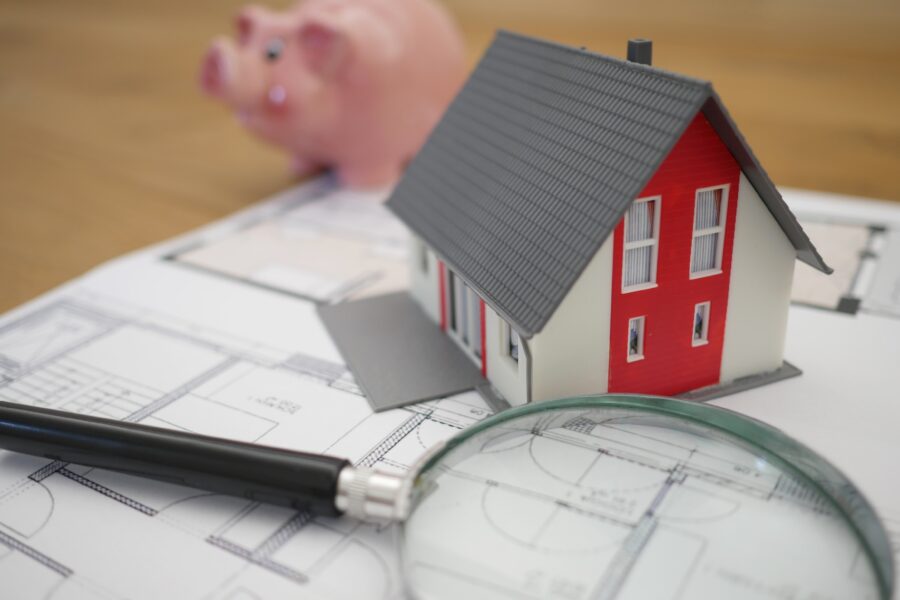
An emergency fund should be a part of everyone’s saving priorities.
It’s a nice little cushion to keep you resilient in the event of unforeseen circumstances that change your financial situation. It can be a lifeline when the unexpected happens and offers peace of mind when things seem to start taking a turn.
Having an emergency fund is always a good idea, especially if you want to maintain your lifestyle during periods of financial transition. When it comes to finances, you can never be too prepared.
There are some common reasons people create an emergency fund, though. In this article, we’ll go through the different reasons you want a safety budget and how much you should have saved reasonably.
Expect the unexpected
You never know what life is going to throw your way. Life happens, and being financially prepared for anything that happens doesn’t only keep you financially resilient, it can also keep you emotionally resilient. You’ll be able to meet the unavoidable without being blindsided.
There are some common reasons to build an emergency fund based on some common, but unavoidable, life events many of us will face from time to time.
1) Health emergencies
Your health is the most important factor in your life. First and foremost, you should have money set aside for any health-related emergency you might have. This is also super important when budgeting for your family, as you want your children to get the treatment they need if it ever comes to be the case that they are ill or injured.
When you’ve budgeted for a health emergency, there’s less to stress about on the money side while getting the care you need.
Health emergencies can be quite expensive, so budgeting for more than a doctors visit is important. Keep additional factors like ambulance rides, the cost of surgery, prescription costs, and lengthy hospital stays in mind when you envision how much to set aside. Obviously, you’d like to cut costs, but you may not have that option in the worst-case scenario.
Being prepared means having the insurance coverage you need. These expenses are greatly reduced when you have insurance on your side. That’s why it’s necessary to work health insurance into your long-term budgeting. Without it, you could end up in a very precarious position after a hospital stay.
2) Home and maintenance emergencies
The next emergency you should consider is home maintenance.
Things like weather, accidents, or damage to old structures can make your home unsafe or unlivable. It’s important to be prepared for these events so you can get back to living comfortably in the place you’ve made your home.
If you live in an area with heavy rain or tornados, it may be wise to set aside money in the event of roofing or flooding emergencies. And, unless you’re doing routine maintenance on all your appliances, you’re likely going to need a repair or replacement of something down the road. There are plumbing and electrical issues to consider, too, and don’t forget about pest control!
These repairs aren’t only for your quality of life.
If you let a maintenance issue fester for too long, it could pose a danger to you and those you live with. Responding to these events in a timely manner can keep a situation from snowballing.
Having homeowners or renters insurance is an added protection to consider as well, especially as it can keep you prepared for a catastrophe like a fire, tornado, or robbery. It’s relatively low cost when it comes to insurance and has the potential to save you a lot on any damages you aren’t liable for. Also, there are plenty of grants out there to assist you in these awful situations.
3) Car maintenance
You’ll need to get from place to place, and depending on where you live, driving may be the most convenient option.
However, cars are costly, and not just in the up-front costs and gas. Maintaining a car is a regular expense that can get hefty quickly. If you’re in an accident, the repairs to your car could be massive.
Every month, you should consider what kinds of regular car repairs you might need, like an oil change or tire replacement. The more you can maintain your car, the less at risk you are for larger problems. However, your emergency fund could also be there for you if you’re in an accident or if unforeseeable mechanical trouble crops up.
Your car insurance may provide you with some money for repairs, but it’s always a good idea to have money set aside just in case repairs are more than you thought. That way, you can be back on the road quicker.
4) Lost income
Unfortunately, facing the reality of losing job security is a necessity when you’re thinking about what you need to prepare for.
With the economy fluctuating as much as it does, it’s always better to be safe than sorry. Though our occupation status may change, our fixed expenses are often less variable, and there may come a time when you might unexpectedly need to rely on your savings for living costs.
You may be thinking, “Oh, that’s not a problem for me.” You may have a very secure position or are always on the job search for better opportunities. Despite this, an illness or disability that takes you away from your work is a possibility for anyone. There’s always paid leave to help out, but it’s good to have an emergency fund just in case.
Needless to say, in case you ever need to find a new job, you should have one to three months of income set aside if possible. Unemployment can help you out a little, but this can make sure you’re comfortable during an already stressful time.
5) Other pending emergencies you want to prepare for on a case-by-case basis
There are plenty of other emergencies that benefit from some safety budgeting. These are on a case-by-case basis, but they may very well apply to your life.
- If there’s a family member who is getting older or has recently been facing an illness, it may be good to set aside money to go out for a visit. Budgeting for funeral expenses may feel morbid, but understanding that these expenses accrue at the worst of times can give you the space you need to process an already very difficult situation.
- If you have a pet, setting aside for their health emergencies may be a good idea, too. You want to make sure your furry, scaley, or feathered friend gets the care they need, especially if they’re getting older.
- If you have dependents, you never know when they’ll need your support. Whether it’s a child in college or a parent you take care of, having a fund for them set aside allows you to be generous and financially secure.
- If you’re a business owner, set aside for unexpected expenses and losses. You need to make sure your business stays afloat, and that might involve paying some out-of-pocket expenses.
How much should I save?
Now, don’t fixate and stress yourself out too much. Just remember that setting aside money is your best chance to make hard situations a little easier.
When you’re building your emergency fund, you’ll be contributing to it over time. You won’t have to deal with these emergencies every day, but even consistently putting small amounts aside can safeguard you from whatever waits on the horizon.
Start with a small, doable saving goal. Let’s say you start with $500. It’s a great way to start an emergency fund and could cover the cost of a lot of different things. Once you hit that, try to get a month’s worth of income. Then, try getting three months! Most experts say that an emergency fund should be a minimum of three months’ income
Once you have that saved, you can keep building and building. You can accelerate your savings by having a certain percentage of your paycheck devoted to it. You can also contribute dollar amounts to it daily or weekly.
There’s no set amount you should save to, but again, there’s no such thing as being too prepared.
SaverLife rewards you for being prepared
Emergencies are something many feel they don’t have the luxury to prepare for. Thinking about all the worst-case scenarios you may come across is often unpleasant enough to keep people from taking the time to plan and set aside funds.
However, it can be a positive experience! Every dollar you set aside now is a dollar you’ll have for a rainy day.
If you need a little more positivity in your saving journey, try out SaverLife! We’ll reward you for anything you put aside for emergencies so you can stay inspired and financially resilient.
If that doesn’t work, our monthly challenges may be the added push you need to stay motivated. And, if you want them, we’ve even got a community of like-minded cheerleads who have financially prepared and stayed afloat in all sorts of situations. Interested in making your saving journey a blast? Try out SaverLife today!

